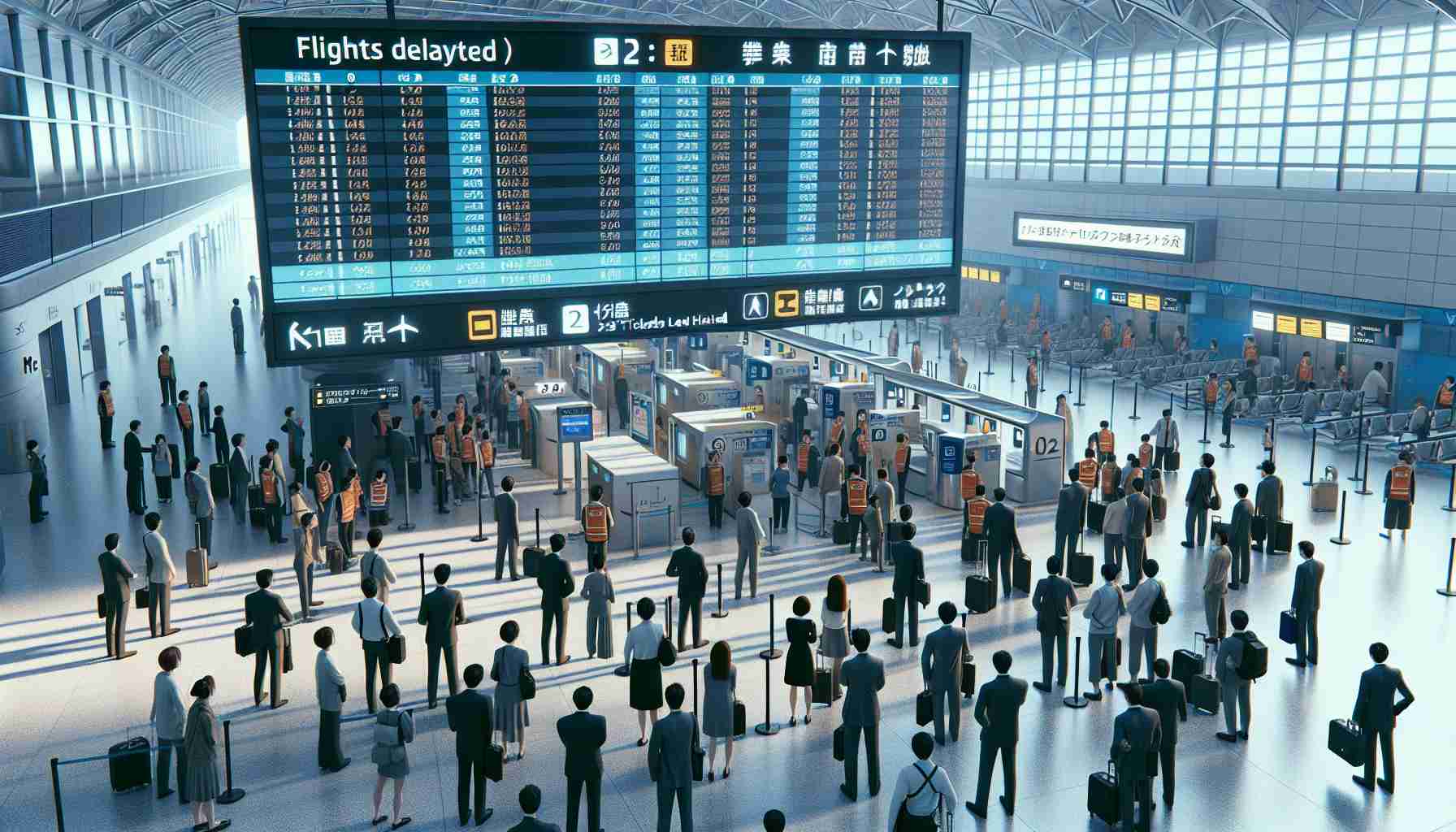Japan Airlines faced significant operational challenges Thursday due to a cyberattack that led to widespread flight delays and luggage service interruptions just as the New Year holiday approach. The airline announced that customers could resume purchasing domestic and international tickets after a brief suspension of sales. Fortunately, they confirmed that no personal data was compromised, and there was no evidence of harmful computer viruses.
The disruptions began early in the day, around 7:25 a.m., impacting over 60 flights, which were delayed for up to four hours, while two domestic flights were ultimately canceled. Although ticket sales were temporarily paused, all existing reservations remained unaffected.
According to investigative reports, the airline suspects a distributed denial-of-service (DDoS) attack may have caused the network failures, where various sources inundate the system with excessive data. By 2 p.m., Japan Airlines managed to identify the issue and restore their systems.
Japan’s Chief Cabinet Secretary expressed that the transport ministry had urged JAL to promptly address the situation for those affected. In contrast, other airlines, such as All Nippon Airways and Skymark Airlines, remained unaffected by any cyber incidents and continued normal operations without disruptions.
In addition, Japan Post reported that the airline’s system issues negatively impacted mail and parcel deliveries. Passengers at Tokyo’s Haneda airport exhibited concern while checking their travel plans, but confusion appeared limited at Narita International Airport.
Japan Airlines Cyberattack: Operational Challenges and Recovery Insights
Overview of Incident
Japan Airlines (JAL) recently experienced severe operational disruptions due to a cyberattack, which occurred just before the bustling New Year holiday period. This attack led to significant flight delays and interruptions in luggage services, affecting over 60 flights with delays extending up to four hours and resulting in the cancellation of two domestic flights.
Nature of the Cyberattack
Preliminary investigations suggest that the airline was targeted by a distributed denial-of-service (DDoS) attack. This type of cyberincident involves overwhelming a network server with excessive traffic, rendering it unable to function correctly. Despite these challenges, JAL reported that no personal data was compromised and that their systems were not infected with harmful viruses.
Impact on Operations
The airline temporarily suspended ticket sales, which was a precautionary measure; however, existing reservations remained unaffected. By 2 p.m. on the same day, Japan Airlines had identified the issue and resumed normal operations. The transport ministry of Japan urged swift action from JAL to mitigate the inconvenience caused to passengers.
Effects on Customer Experience
Passengers at Tokyo’s Haneda Airport faced heightened anxiety regarding their travel plans due to the confusion stemming from the operational issues. Conversely, Narita International Airport saw minimal confusion among travelers. The disruption also extended to Japan Post, as their delivery services were impacted due to JAL’s system failures.
Comparisons with Other Airlines
During this incident, it is notable that other airlines, such as All Nippon Airways and Skymark Airlines, experienced no cyber-related disruptions. Their normal operations highlighted the severity of the situation faced by Japan Airlines and allowed comparisons between their robust cybersecurity measures and those of JAL.
Future Considerations and Innovations
As the airline industry increasingly relies on digital systems for operations, the risk of cyberattacks will likely continue to be a significant concern. Airlines may need to invest in stronger cybersecurity measures and incident response strategies to better protect customer data and ensure operational resilience.
Trends and Predictions
Looking forward, it is expected that airlines will enhance their cybersecurity protocols to prevent similar incidents. Investments in advanced technologies like artificial intelligence for threat detection and response, along with employee training in cybersecurity awareness, will become critical components of operational strategies in the aviation sector.
For more insights into aviation industry trends and security measures, visit Japan Airlines.



